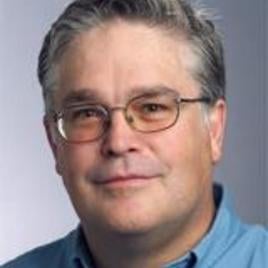
Kirk Visscher
Professor of Entomology
- AB Biology 1978
- Harvard College
- MS Entomology 1982
- Cornell University
- PhD Entomology (Minors: Eco. & Behav.Biol.) 1985
- Cornell University
Social behavior and ecology of social insects Role and management of bees in agriculture. Evolution of social behavior.
Research Specialization - Social insects represent one of the pinnacles of organic evolution. Their societies display complexities of interactions among individuals and feats of group cooperation rivaled only by humans. My research interests in the social behavior and ecology of social insects emphasize honey bees, which occupy a special place among the social insects because they are among the most behaviorally complex, the most amenable for study, and of the greatest benefit to man.
1993 - USDA Superior Service Group Award for Environmental and Natural Resource Protection
Tanner, D.A. and P. K. Visscher 2009 Does the body orientation of waggle dance followers affect the accuracy of recruitment? Apidologie 40:xxx In press.
Passino, K. M., T.D. Seeley and P. Kirk Visscher 2008 Swarm cognition in honey bees. Behavioral Ecology and Sociobiology 62:401-414.
Tanner, D.A. and P. K. Visscher 2008. Do honey bees average directions in the waggle dance to determine a flight direction? Behavioral Ecology and Sociobiology 62:1891-1898.
Seeley, T. D. and P. K. Visscher 2008. Sensory coding of nest-site value in honeybee swarms. Journal of Experimental Biology 211:3691-3697.
P. K. Visscher 2007. Nest site selection and group decision-making in social insects. Annual Review of Entomology 52 in press.
Visscher, P. K. and T. D. Seeley. 2007. Coordinating a group
departure: Who produces the piping signals on honey bee swarms? Behavioral Ecology and Sociobiology 61:1615-1621.
Seeley, T. D., K. M. Passino and P. K, Visscher. 2006. Group decision making in honey bee swarms American Scientist 94:220-229.
D. A. Tanner and P. K. Visscher 2005. Do honey bees tune error in their dances in nectar-foraging and house-hunting? Behavioral Ecology and Sociobiology 59: 571-576.
T. D. Seeley and P. K. Visscher 2004. Quorum sensing during nest-site selection by honey bee swarms. Behavioral Ecology and Sociobiology 56:594-601.
T. D. Seeley and P. K. Visscher 2004. Group decision making in nest-site selection by honey bees. Apidologie 35:101-116.
Visscher, P. K. 2003. How self-organization evolves. Nature 421: 799-800.
Sherman, G. and P. K. Visscher. 2002. Honey bee colonies achieve fitness through dancing. Nature 419: 920-922.
Visscher, P. K. and S. Camazine. 1999. Collective decisions and cognition in bees. Nature 397:400.
Camazine, S.,Visscher, P. K., Finley, J. & Vetter., R. S. 1999: House-hunting by honey bee swarms: collective decisions and individual behaviors. Insectes Sociaux In press.
Visscher, P.K. & Dukas, R. 1997. Survivorship of foraging honey bees. Insectes Sociaux 44:1-5.
Visscher, P.K., R.S. Vetter & F.C. Baptista. 1997 Africanized Bees, 1990-1995: initial rapid invasion has slowed. Calif. Agr. 51:22-25.
R.S. Vetter, R.S. & P.K. Visscher. 1997. Influence of age on the antennal response of male honey bees (Apis mellifera L.) to queen mandibular pheromone and an alarm pheromone component. J. of Chem. Ecol. 23:1867-1880.
Visscher, P.K. 1996. Reproductive conflict in honey bees: a stalemate of worker egg-laying and policing. Behavioral Ecology and Sociobiology. 39:237-244.
Visscher, P.K., R.S. Vetter, & S. Camazine. 1996. Removing bee stings: speed matters, method doesn't. The Lancet. 348:301-302.
Vetter, R.S. & P.K. Visscher. 1995. Laboratory rearing of western yellowjackets (Hymenoptera: Vespidae) through a full foundress-to-gyne colony cycle. Ann. Entomol. Soc. Am. 88:791-799.
Dukas, R. & P.K. Visscher. 1994. Lifetime learning in honey bees. Animal Behaviour, 48:1007-1012.
Visscher, P.K. 1993. A theoretical analysis of individual interests and intracolony conflict during swarming of honey bee colonies. J. Theoretical Biol. 165: 191-212.
Visscher, P.K. 1989. A quantitative study of worker reproduction in honey bee colonies. Behav. Ecol. & Sociobiol. 25:247-254.
Ratneiks, F.L.W. & P.K. Visscher. 1989. Worker policing in the honeybee. Nature 342:796-797.
Visscher, P.K. 1986. Kinship discrimination in queen rearing by honey bees (Apis mellifera). Behav. Ecol. & Sociobiol. 18:453-60.
Visscher, P.K. & T.D. Seeley. 1982. Foraging strategy of honeybee colonies in a temperate deciduous forest. Ecology 63:1790-1801.